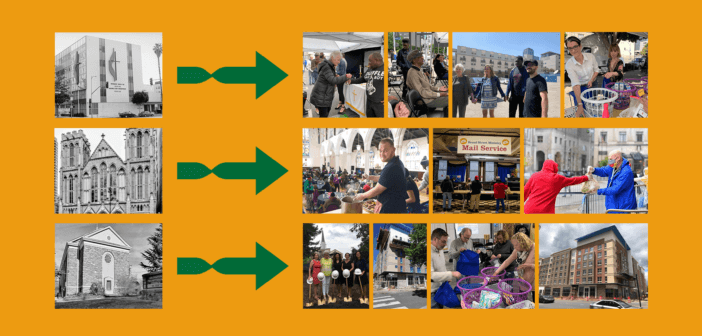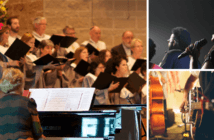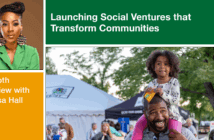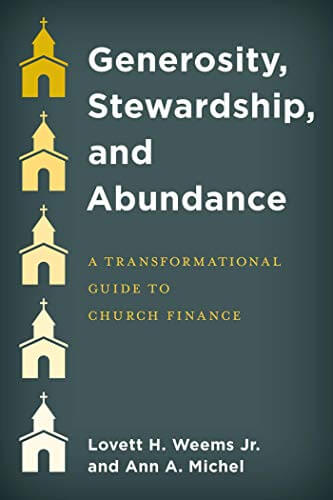How can local churches reimagine property stewardship so that a building can fund a church, rather than a church needing to fund a building? Tom Sine and Dwight Friesen offer examples of churches that have discovered innovative ways to leverage their property to fund their church and ministry.
It seems clear that the future of the church will focus less on the construction and maintenance of buildings, so centrally important in the past. At the same time, existing church properties can also be incredible resources if stewarded in innovative ways for the future. A key framing question is this: how can local churches reimagine property stewardship so that the asset of their church-owned building can fund their ministry instead of the people needing to fund their building?
As Christian churches continue to age and shrink in attendance, the economics of ministry are rendering growing numbers of churches financially at risk. Some fall into disrepair, some are sold, and some are even abandoned. But some local churches are flipping the script of their church-owned property. These churches are discovering innovative ways to leverage the asset of their property to fund their church and ministry.
Here are a few examples of how churches have made a real difference in the lives of their neighbors.
Worship in a Parking Lot
First United Methodist Church in Los Angeles was struggling with a problem afflicting churches all over North America. They possessed a large building that was expensive to maintain, and the congregation was aging and declining in membership. For many shrinking congregations, building maintenance takes up a growing share of their limited income.
Pastor Mandy McDow, the minister of First United Methodist Church, introduced the congregation to what she called “the inverted business model.” Essentially, their historic building was deconstructed to create a 100-space car park across the street from LA’s 20,000-seat arena.
In this “inverted business model,” the church community earns a very good income through collecting parking fees for sporting events and concerts at night. The income from the parking lot not only pays the modest costs for the church, but the church is able to provide generous amounts of this income to social service agencies in downtown LA to address the needs of its neighbors. On Sundays, the parking lot is transformed. They raise a tent to hold their worship service.
Enterprise Community Partners: Church Properties to Low-Income Housing
In the Mid-Atlantic region of the United States, this new “inverted economic model” is helping address the urgent and growing need for low-income housing. Enterprise Community Partners is one of the firms that is repurposing church properties. Sometimes, they create a community space in the housing complex that the church can use as a worship space on Sundays. Pastor McDow is deeply concerned by the number of pastors negatively affected by their congregation’s struggles with the cost of property maintenance. For McDow it is down to the question she regularly asks herself. How do we best love God and one another?
Broad Street Urban Hospitality Center
Though we have both worked with a lot of urban churches, neither of us has ever seen anything quite like Broad Street Ministry in Philadelphia, formerly Center City Presbyterian Church. While there, we met with Laura Colee, who is both the administrator and pastor. The church decided to redesign their church building to offer a broad range of services for their downtown neighbors. Here is what they offer:
- Meals for 300 people, five days a week. Several local professional chefs regularly come in to share their gifts.
- Concierge caseworkers
- Primary care doctors
- A clothing closet that they keep well stocked
- A mailbox where people can receive their mail
- An overnight café that has hot coffee and rolls, which can handle 75 to 100 guests per night, though on cold nights they have accommodated as many as 300 people
- Open worship every Sunday at 4:00 pm with communion
Isn’t it encouraging to see established churches reinvent themselves and their properties to creatively engage the changing needs of their neighborhoods?
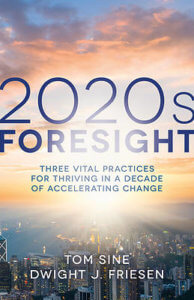 This material is excerpted from 2020s Foresight: Three Vital Practices for Thriving in a Decade of Accelerating Change (Fortress Press, 2020) by Tom Sine and Dwight J. Friesen. Used by permission. The book is available at Cokesbury and Amazon.
This material is excerpted from 2020s Foresight: Three Vital Practices for Thriving in a Decade of Accelerating Change (Fortress Press, 2020) by Tom Sine and Dwight J. Friesen. Used by permission. The book is available at Cokesbury and Amazon.
Related Resources
- Leveraging Church Property Can Sustain Your Mission by Lovett H. Weems Jr. and Ann A. Michel
- “Leveraging Your Church’s Assets,” a Leading Ideas Talks podcast episode featuring Jacqueline Jones-Smith


